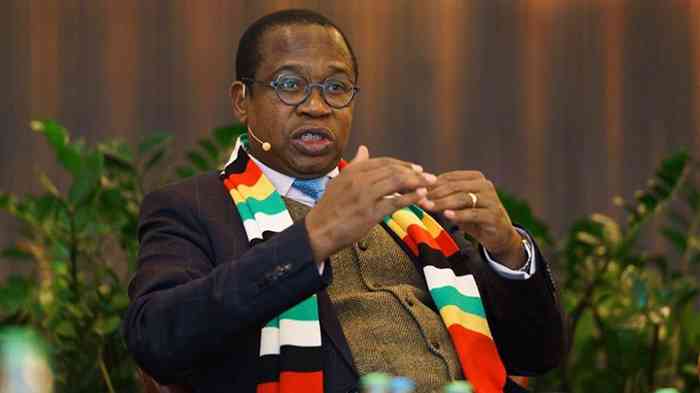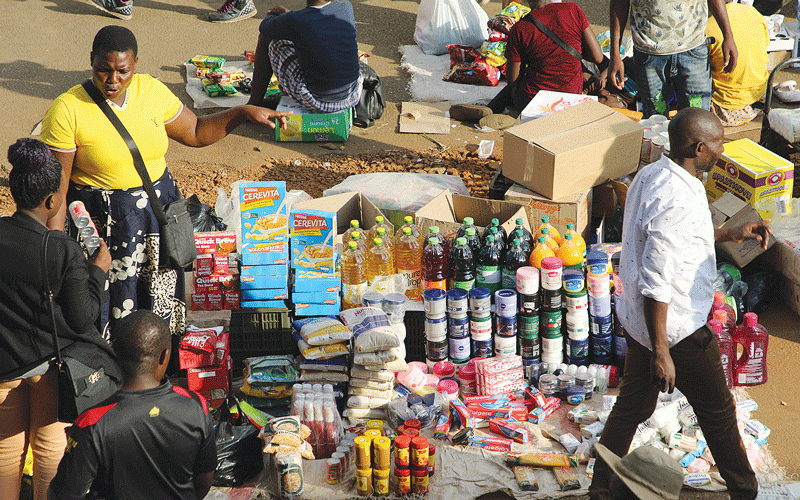
FINANCE minister Mthuli Ncube has unwittingly admitted that the ruling Zanu PF party sold Zimbabweans a dummy when it pledged 1,5 million houses in its 2018 election manifesto, telling Parliament that government could only deliver 50 000 houses.
During debate on the Finance Bill for the 2023 national budget in the National Assembly last Friday, Ncube was grilled by Kambuzuma legislator Willias Madzimure (Citizens Coalition for Change) over the $27,7 billion housing budget allocations, and asked to explain whether government would be able to meet the 1,5 million houses pledge.
“The minister also talks about housing delivery. This is contrary to the Zanu PF manifesto which promised two million houses from 2020-2025. He is giving us 450 000 houses. He will have to explain what really went wrong as far as the building of houses is concerned considering that the population is high, and we have got a lot of people who do not have accommodation,” Madzimure said.
In his response, Ncube indirectly admitted that government was unable to deliver 300 000 houses annually.
“On housing, the Honourable Member (Madzimure) referred to some figure (two million). I urge honourable members to go by the budget. We are not discussing the manifesto in the budget,” Ncube said.
“Can you imagine if I had to go through every manifesto? We have got a budget and it is informing 50 000 houses and we think that this target is achievable. Houses are being delivered by both the government in terms of institutional housing or near institutional housing, but also by the private sector, which will be responding to incentives provided in the sector. We are pleased with the progress in the housing sector.”
In its 2018 election manifesto, Zanu PF announced an ambitious project to construct 1,5 million housing units by 2023, translating to 300 000 houses per year, or 25 000 a month, 6 250 a week or 822 houses a day.
If the plan had been implemented since 2018, over 1,3 million houses would have been constructed to date.
- Groups want Chinese penalised
- ZRP pays heavily for abuse
- State weaponising law against civil society, CCC
- Mnangagwa under fire over crackdown
Keep Reading
Last month, National Housing and Social Amenities minister Daniel Garwe said the housing backlog in urban areas had shot up to two million from around 1,5 million in February.
Moreover, figures released by the Zimbabwe National Statistics Agency this year showed that nearly half of the urban population, about 5,7 million people, were living in rented accommodation.
In a budget analysis, research watchdog Zimbabwe Coalition on Debt and Development (Zimcodd) said the proposed allocation of $27,7 billion (US$34,6 million) to housing was paltry.
“The proposed allocation is not sufficient to fulfil government’s ambition of 450 000 housing units and the policy priorities stipulated in the Zimbabwe National Human Settlement Policy such as effective human settlement delivery, settlement financing, regularisation of informal settlement, urban regeneration and renewal, rural settlement and social amenities,” the Zimcodd report read.
“Access to social amenities in urban and rural areas remains low, with the government failing to fulfil the 63% access benchmark stipulated in the National Development Strategy 1 for the year 2022. Infrastructure dilapidation and gaps have not spared social amenities which are now dilapidated.”
In August, independent researchers Sivio Institute said Zanu PF had managed to fulfil only 13 out of the 235 electoral promises it made in the run-up to the 2018 polls.
In 2018, Zanu PF pledged to refurbish the education, health and housing facilities, and that it would build 2 000 schools by 2023, rehabilitate and establish at least one vocational training centre per administrative district, and establish at least one new hospital per administrative district by 2023.
This year in March during by-election campaigns, government promised to issue 80 000 title deeds to settlers living in informal settlements, a promise that Garwe has since dismissed saying the title deeds could not be dished out on a silver platter.











